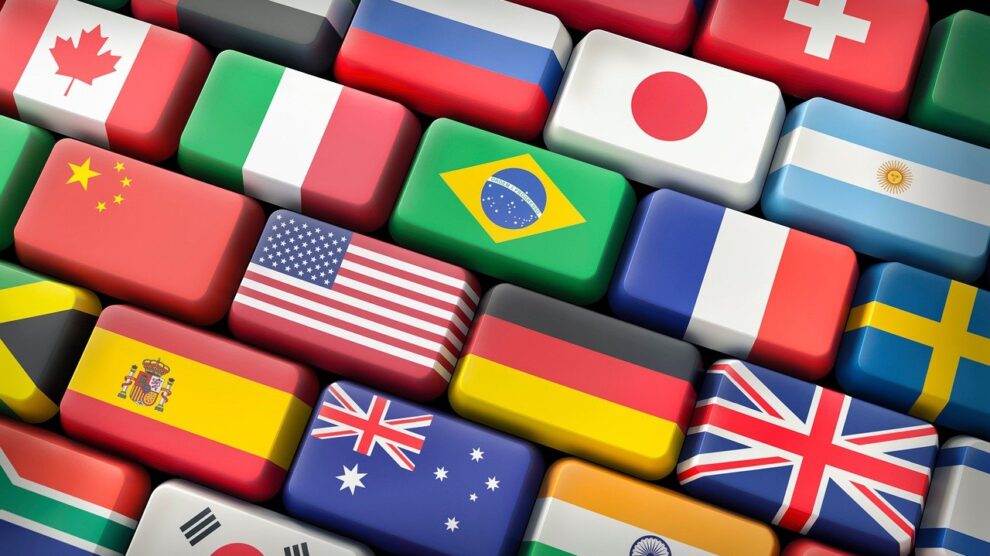More and more websites are expanding in terms of distinct language and location versions. That shouldn’t come as a surprise. Localizing your website exposes your content and commerce to whole new audiences, extending your reach and revenue potential at a fraction of the cost of creating original content. But the prospect of adding languages and location can be daunting for a webmaster or online marketer.
Distinguishing Translation Services and Localization Services
These days the terms “translation services” and “localization services” are often used interchangeably, partly because agencies which do one often do the other as well. A translation definition, of course, is hardly needed: translation is simply converting from a source language into a target language.
What are localization services? Localization encompasses not just translation but also conversion of number and date formats, currency and measurement units. It also involves considering cultural differences, likes and dislikes, that affect language choice and visual representation.
Localization services, too, involve a significant technical component, involving the website code. Typically, there is an intermediate process called “internationalization” in which the code is prepared with variables in all places influenced by choice of location. Then adding a language is simply a matter of adding a new set of text strings to a database matrix.
Language Translation Services vs. Content Localization Services
An easy way to understand the difference between translation and localization is to consider a couple of simple examples. If you have an English language website and you want to reach Spanish speakers, you will want a Spanish translator to translate from Spanish to English. But you will quickly discover that the Spanish translation suited to Mexico City is not the same as the one appropriate for Montevideo or Madrid. Nor are number and date formats, currencies and measurements the same.
The same holds true for a Spanish company looking to reach the English-speaking world. The language of San Francisco is not the same as the English of Southampton, South Africa, or Sydney. You may have a translator to translate from Spanish to English, but which English? And which standards and currencies? For that you need localization services.
Getting Help with Translation and Localization Services
Who needs professional translation services? The simple answer is: anyone who wants a professional web site. If the language of your new “local” site is incorrect, it will alienate your target audience, not attract them. If you’re going to do it, do it right. It is not rocket science to translate a website, but it’s not something that can be done adequately by a machine.
Who can provide translation services? There are many places to find a language translator. It depends on your location and your budget. If you have a decent budget, it will make sense to look for a translation services provider. Such companies are usually equipped to help you translate not just into one new language, but many. And they will save valuable time by taking care of many administrative and management functions. A good translation agency will provide a “one stop shop” for your translation projects.
Working with Translation and Localization Service Providers
Who can provide localization services? Many translation agencies have expanded their service to include the extra components required in localization, and others partner with software companies, either transparently or behind the scenes. Others position themselves as localization agencies: they tend to be more technical. It boils down to a matter of price and personal taste.
You should expect a prompt and free price quotation, including detailed timetable. You should send your current website link, and any instructions concerning the target languages you want to support. A good localization company will provide some initial free strategic consultation. You should also expect a warranty on their work. If mistakes are found, even after delivery, they should do so promptly and without additional cost.
As a rule, the service agency will assign a senior (and perhaps also a junior) account executive to service your account. They will serve as your liaison to the various localization teams, usually one per language or region. In general, you won’t have direct contact with the actual translators and localizers. You will interact exclusively with your account managers, and they will make sure that the production teams do their jobs to the agreed specifications and according to the approved timetable. This may be unsettling not to have direct contact with the translators, but it focuses all responsibility on the agency and frees you from time-wasting management and administration. You have better things to do, don’t you?
Freelance and Machine Translation Services: Where Do They Fit In?
To save money, you may be tempted to turn to freelance translators, rather than agencies, to undertake your translation or localization project. There are excellent freelance marketplaces like Upwork and Freelancer which make it easier to select and work in this way.
Freelance translators are typically less expensive than translation or localization agencies, but they involve more work on your part. All responsibility will fall on your head.
Resist the temptation to use free online translation services like Google Translate and Microsoft Translator for published web pages. They are still no match for a skilled human linguist. They are useful for research and correspondence, but the risk of an embarrassing translation should deter you.
If you have a WordPress site, consider WPML and other plugins which support multilingual sites. Your theme, too, should be compatible with the languages for which you localize. Check to make sure that right-to-left languages like Arabic or Hebrew are supported if you target the Middle East. The same for Chinese, Japanese, Korean, and Thai if you are marketing to the other side of Asia.
This should get you started going global. For additional information, consider these helpful directions for additional translation and localization tips.





